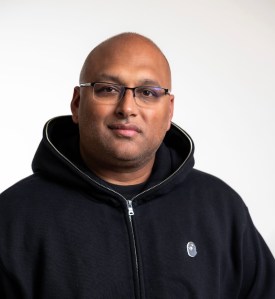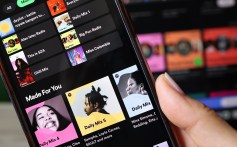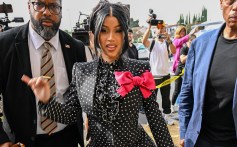Business
Page: 12
Trending on Billboard
Over her 20-plus-year career, Tracy Gardner has seen her fair share of technological disruptions in the music business. “I started right when illegal downloads took over,” she says of her entry into the industry as an intern at what was then Warner Bros. Records (now Warner Records).
As TikTok’s global head of music business development — a position she has held since February — Gardner is now running point for the biggest disruptor of the industry over the last five years. The Brooklyn Law graduate, whom ByteDance recruited in 2019 after six years in the legal affairs and business development departments at Warner Music Group, took over from Ole Obermann — whom she also worked with at WMG — when he departed for Apple Music.
Related
In her new role as the platform’s chief liaison with the music industry, Gardner oversees deals with labels, publishers and the TikTok commercial music library and works closely with the platform’s strategy, finance, artist services, product and ad sales teams.
Her promotion comes at a fitful moment for TikTok, as ByteDance and the Trump administration are reportedly finalizing a deal that would result in a consortium of U.S. investors acquiring a majority stake in the app. Gardner was not able to comment on that process or how it might affect her division. But in this interview — her first since assuming her current role — she asserts that nearly two years after Universal Music Group temporarily pulled its artists’ music from TikTok over a breakdown in licensing negotiations, and the social media platform shifted label licensing away from Merlin, which licenses digital companies on behalf of over 30,000 indie labels and distributors, “We’re in a great place with the music industry. It’s a dynamic partnership that, as TikTok evolves quickly, has an impact on how we’re looking at deals, how we work with partners and what they want to get from a partnership with us.”
At Warner, you were on the other side of the negotiating table with ByteDance. How did that experience affect how you conduct your job now?
Mainly, it was great to come from the perspective of being at a label and a rights holder. [TikTok] was still relatively new when I got there, and we had to build the infrastructure and collaborate with other teams at ByteDance. A lot of our music team came over from either other DSPs [digital service providers] or labels, so there was a very good base to help the product teams, who don’t have music experience, understand what these rights holders expect from tech partners and what their artists are looking for.
What did you learn from watching Ole Obermann?
Ole and I worked together at Warner. Often people in business development [at music companies] come from one of two paths: f inancial or legal backgrounds. I was fortunate that Ole came from a more numbers- based, financial background, whereas mine was legal. He forced me out of my comfort zone. I wanted to look at the term sheet, and he told me, “You have to focus on the numbers. The numbers don’t lie.” Then we both moved to TikTok, and he [built] a great infrastructure of how the team operates, how we present budgets and how we work with senior management.
Related
How have you tailored your current role to your perspective and experience?
Ole was overseeing both recorded music and publishing, while I was more in day-to-day operations on the recorded-music side working with artists. So when I took on this new job, I said, “Why don’t we apply the best practices we have for artists to songwriters?” One thing that we’re particularly proud of is the songwriter feature we launched earlier this year [enabling songwriters to tag songs they’ve written in the music tab of their account]. The songwriters are really enjoying being able to step out from behind the curtain and get the acknowledgment that they deserve. We plan to roll that out more broadly.
TikTok increasingly has prioritized e-commerce with the TikTok Shop. How is your team working with artists there?
We are working with the e-commerce teams at the labels as well as our own. One thing we’re seeing is old vinyl sells. Even though people don’t have record players, they view these albums as collectibles. We also see great success when an artist does a livestream. We did one with Lizzo that was quite successful and one with the Jonas Brothers.
TikTok has hosted a number of intimate pop-up events recently for artists’ top fans. Ones with Miley Cyrus and Ed Sheeran come to mind immediately. This is an interesting move to me because you are a social media platform. You want to engage fans online. Why did you want to take people off their phones and get them outside with artists?
Music discovery starts on TikTok — discovery, promotion and fandom grows here, and we view it as a flywheel. After discovering a song, we then help to promote it with some of the campaigns that we do, then we tie that to the “Add to Music App” function so that you can listen on your streaming service. We’re see that what we do moves the needle on streaming, which then leads to charts, which then leads to increased fandom.
We thought that there would be a great opportunity to bring this to real life, to invite the fans that have the greatest engagement with an artist on TikTok to come see the artist in person, even if it does mean going off the platform for a bit. What I thought was beautiful about the Miley event at Chateau Marmont, was that the people there were so impassioned that they started posting so much about it. Even though I wasn’t there, they made me feel like I’d actually experienced it. Right now, we’re finding a way to create joyful intimate moments and creating them in a way that encourages fans to film and to bring them back onto TikTok.
Related
After a song goes viral on TikTok, it often ends up doing really well on streaming services. For a while, TikTok was building its own streaming service, TikTok Music. Why was it shut down last year?
It was just a decision of priorities. We were trying to grow it for quite some time, and the decision was made: “You know what? Out of all the things we’re doing, this is not succeeding at the level we want. Let’s focus on other areas.” It was an awesome service and it really tied in all the great parts of TikTok, but it was just a decision by management.
TikTok recently let go about 15 people from the U.S. and Latin American music teams, and layoffs are forthcoming in the United Kingdom. Some are interpreting this as a sign that the company is backing away from its partnerships with the music business.
As so many other big companies have recently done — Amazon announced a big round of layoffs, for instance — organizational changes are due to changes in structural needs. Companies can grow very quickly and then must reassess what’s best for them. There is definitely no change in the priority around artist services and artist relations. For us, it’s business as usual.
How are you reassuring the music industry that you remain committed to the partnerships and plans you already made?
We’re telling them it’s business as usual, and our valued industry partners remain the highest priority. We just want to focus more on the core priorities for artists and songwriters to help drive the value on the platform.
How is TikTok ensuring artists have safeguards against artificial intelligence-generated deepfakes?
We ask that users tag anything that’s AI-created. Aside from that, I don’t think the industry has a quick solution right now to identify those and take them down. If someone notifies us, our trust and safety team will take them down if needed. But it is a very interesting time right now.
Related
AI-generated songs have appeared on the TikTok and Billboard charts. Are you pursuing any policies that would bar AI music on your platform and charts?
It’s uncharted territory. Even with U.S. Copyright Office guidance that works must have sufficient human contribution to be protected, what does that mean? There’s such a wide span from a song being totally created by AI to one that’s created by a human with just one or two AI contributions. How do we decide when it’s such a gray zone? So I don’t think we’ve made a decision on that yet, and I don’t think a lot of the DSPs have either.
If AI-generated music starts performing well on TikTok, could it diminish the leverage rights holders have in negotiations with you?
I don’t think it would have any impact. We’re all aware that AI music is out there, and some exceptions have risen on the charts, but it would not at all impact the value that we see in our partners and how our deals with them are structured.
What are some best practices for artists seeking to gain an audience on TikTok?
The beauty of it is that any song has a chance to go viral. It just depends on how the billions of people on the platform react to the song. Oftentimes, I’m asked, “Do you have to be really leaned in?” It depends. A great example is Connie Francis. Her song “Pretty Little Baby” blew up this year. She wasn’t on the platform at the time. Eventually she did get on, which was great, but this music resonated [on its own].

Independent music company EMPIRE has announced a wave of key leadership moves across its publishing, commerce and Nashville divisions as the company celebrates its 15th anniversary.
Vinny Kumar has been promoted to president of EMPIRE Publishing, where he’ll continue overseeing global deals and strategy. Under Kumar’s leadership, EMPIRE Publishing has become a leading independent publisher, representing Grammy and Latin Grammy-nominated songwriters and earning recognition across ASCAP, BMI, and NMPA awards. The division debuted in Billboard’s Hot 100 Publisher Rankings Top 10 in 2024.
“We met nearly two decades ago and he’s been part of the foundation of what this company stands for,” EMPIRE founder and CEO Ghazi said of Kumar. “He will continue to lead with integrity and creativity, and his passion for music and strategic vision have helped elevate every facet of our publishing business.”
Vinny Kumar
EMPIRE Africa also launched its publishing arm under managing director Munyaradzi Chanetsa, with notable successes from writers behind Davido’s Grammy-nominated “Unavailable” and multiple Southern African hits.
Meanwhile, Matthew Maysonet has been elevated to senior vice president of commerce and streaming partnerships, leading a global team of nearly 20. Andrea Galicia moves up to senior director, while Goldie Harrison (formerly of UnitedMasters) and Daisy Moreira (a Def Jam veteran) join as directors in the division. The team will drive monetization and streaming strategies for EMPIRE’s diverse roster, including Latin and global acts.
Galicia, Harrison and Moreira
In Music City, EMPIRE Nashville added Bri Small as vice president of digital and Zak Waters as director of A&R. Small (ex-Warner Music Nashville) will lead digital engagement for Nashville artists, while songwriter and producer Waters will focus on talent discovery and creative development. Both hires underscore EMPIRE’s commitment to an artist-first, genre-fluid approach in one of the industry’s most competitive markets.
EMPIRE Nashville leader Jen Way praised Small for bringing “such a special energy and creativity to everything she does,” calling her the ideal person to guide the label’s digital strategy. She described Waters as a versatile creative with strong storytelling instincts who will “represent exactly where EMPIRE Nashville is headed—artist-first, genre-fluid, and creatively fearless.”
Bri Small (Credit: David Bradley) and Zak Waters (Credit: Zak Cassar)
Check out a full rundown of this week’s staffing news below.
Dee Hale (Sony Music Publishing)
Image Credit: Amy Allmand Photography

Trending on Billboard
Music fans would choose a concert over having sex if it meant seeing their favorite artists perform, according to a recent survey from concert promoter giant Live Nation.
Titled “Living for Live,” the global report includes insights from more than 42,000 fans (defined as anyone who attended a concert in the last year) aged 18 to 54 across 15 different countries, including all of North America, most of Western Europe, Australia, Japan, Thailand and Brazil.
Related
According to the survey, fans have named concerts as the world’s top form of entertainment, outranking attending movies, sporting events and even having sex, with 70% of respondents saying they would choose a concert by their favorite artist over lovemaking.
“This report confirms what we’re seeing on the ground everywhere,” said Russell Wallach, Live Nation’s global president of media and sponsorship, in a statement. “Live music isn’t just growing, it’s shaping economies, influencing brands, and defining culture in real time. Fans have made live the heartbeat of global entertainment, and it’s now one of the most powerful forces driving connection and growth worldwide.”
The study is meant, in part, to drive new insights about the millions of fans who attend concerts every year on behalf of the 1,500 major brands and sponsors that spent $1.2 billion with the company in 2024, according to Live Nation’s year-end financials.
Related
The study found that 35% of fans plan to attend at least four concerts per year, while 29% of festivalgoers plan to attend at least four festivals per year. The report also found that 85% of fans said music was a core part of their identity, that 77% felt part of something bigger at shows, and that, among parents, the number one passion many hoped to pass on to their children was a love for live music.
The report also found that demand for female artists was continuing to grow, with 76% of responding fans reporting that they wanted more female-led lineups and 60% reporting a desire to see more festivals spotlight female talent.
The report covers a broad range of how fans view the importance of live music in their lives, the global nature of touring and the economic impact touring can have on local markets. A complete summary of the report can be found at livingforlive.livenationforbrands.com.

Trending on Billboard
Lil Durk says his lawyers have been unfairly “kept in the dark” about death threats that were called in to a judge and the lead prosecutor in his murder-for-hire case.
Attorneys for the Chicago drill star argue in a Thursday (Nov. 13) court filing that they just learned about a seven-month-long FBI investigation into these threats, and that this concealment has severely prejudiced the rapper (Durk Banks) as the clock ticks towards a January trial date. Durk is accused of ordering members of his Only the Family (OTF) crew to shoot his rival, Quando Rondo, in 2022.
Related
The case is being prosecuted in Los Angeles federal court and chiefly overseen by U.S. District Judge Michael Fitzgerald, though Magistrate Judge Patricia Donahue handled Durk’s failed attempt to be released on bail this spring. According to Thursday’s filing, a Durk supporter left four voicemails for Judge Donahue in February with “explicit death threats” related to the charges against him and other OTF members.
The caller allegedly mimicked the sound of gunfire in his messages and said in one message, “If they get life, I’m going to burn this [expletive] down. I’m talking ’bout the world, and I’m going to burn it, burn it to the ground.”
Durk’s lawyers say that in April, a separate caller phoned the case’s lead prosecutor, Ian Yanniello, with more death threats. This person also allegedly threatened courthouse staff and other prosecutors in the U.S. Attorney’s Office for the Central District of California.
According to Thursday’s filing, prosecutors and court staff conferred about these death threats, and the FBI investigated the matter extensively. But the defense lawyers say they weren’t clued in until just last month, which they claim is a huge problem.
Related
“This prolonged nondisclosure — compounded by undisclosed ex parte communications between the prosecution team and the bench about these threats — has irreparably compromised the structural integrity of these proceedings,” reads the filing.
Durk’s lawyers say these death threats could have improperly influenced prosecutors’ decision-making, as well as Judge Donahue’s May ruling that Durk would be a danger to the community if released from jail.
“To state the obvious, Judge Donahue was in no position to consider whether Mr. Banks was too dangerous to be released while having been both personally threatened by someone purporting to act on Mr. Banks’ behalf, and having had her entire workplace physically and violently threatened by the same,” write the rapper’s attorneys.
Durk’s team says the situation has “fatally compromised” his right to a fair trial, which is just two months out. They’re asking that the entire case be dismissed, or at the very least, that the trial be pushed back and reassigned to both a different court and a separate branch of the U.S. Attorney’s Office.
Related
A spokesperson for the prosecution declined to comment on the matter. Reps for the Los Angeles federal courthouse did not immediately return a request for comment.
Durk was arrested last year for allegedly putting a bounty on Rondo’s head. A 2022 shooting at a Los Angeles gas station left Rondo (Tyquian Bowman) unscathed, but Rondo’s friend Lul Pab (Saviay’a Robinson) was killed in the crossfire.
The Chicago rapper denies ordering the hit and says there’s no real evidence against him. The case’s first indictment included lyrics from Durk’s song “Wonderful Wayne & Jackie Boy,” but those were later removed after defense lawyers noted that the song was written months before the Rondo attack.
Trending on Billboard
ABKCO, a music company that owns The Rolling Stones‘ early catalog, has brought a lawsuit against Behr Paint over an Instagram advertisement that allegedly used an unlicensed version of the band’s “Paint It, Black,” which ABKCO calls “one of the most valuable copyrights in the history of popular music.”
The copyright infringement case, filed on Wednesday (Nov. 12) in federal court, centers on a 2022 Instagram ad for Behr that showed a person spray-painting furniture while “Paint It, Black” played in the background. ABKCO claims Behr didn’t pay for the track.
Related
While individual social media users can soundtrack their videos for free with songs covered by blanket licenses, companies are required to buy so-called sync licenses for music in commercial advertisements. ABKCO’s lawsuit says it regularly sells sync licenses for “Paint It, Black” — and collects fees ranging from the hundreds of thousands to millions of dollars for the song, which hit No. 1 on the Billboard Hot 100 in 1966.
“Behr’s commercial use of the ABKCO recording has forced a business association upon ABKCO that has harmed its ability to license the ABKCO recording to Behr’s competitors that would pay for the use of the ABKCO recording,” writes lawyer Benjamin Akley of Pryor Cashman. “Clearly, the ABKCO recording is not only iconic, it has unique and particular value to a paint company seeking to promote its paint products.”
According to the lawsuit, ABKCO didn’t learn about the 2022 ad until this past summer. ABKCO’s attorneys allegedly notified Behr, leading the paint company to take down the video, though the company “was unwilling to engage in further dialogue concerning its unauthorized use,” the lawsuit claims.
Related
ABKCO claims Behr is a “sophisticated, multi-billion-dollar corporation” that knows the rules around sync licenses, yet it “inexplicably” chose not to follow those rules here. Now, the lawsuit is seeking financial penalties for Behr’s alleged copyright infringement.
“As a result of the aforementioned acts of infringement, ABKCO has suffered significant damages,” reads the complaint.
Reps for Behr did not immediately return a request for comment on the lawsuit on Thursday (Nov. 13).
Trending on Billboard
Ray J is bringing a bombshell countersuit against Kim Kardashian and Kris Jenner, accusing them of intentionally releasing the infamous sex tape with him that launched Kim’s career — and then “peddling the false story” that it was leaked.
A month after the mother and daughter pair sued the singer for defamation over his allegation that they were facing a criminal racketeering investigation, Ray J hit back hard — claiming to reveal the true backstory behind his and Kardashian’s legendary sex tape.
Related
“Mother and daughter have spent two decades peddling the false story that the sex tape that Kardashian filmed [Ray J] was leaked against her will,” writes Ray J’s attorney, Howard King, in a countersuit submitted in Los Angeles court Thursday (Nov. 13) and obtained by Billboard. “They are furious that Norwood no longer wants to play along with their tall tale.”
The reality, Ray J claims, is that Kardashian and Jenner arranged the entire thing, doing so after seeing how the non-consensual release of Paris Hilton’s sextape had led to “meteoric international attention” for her. “Kardashian aspired to even greater fame,” Ray J says.
In a statement to Billboard, Kardashian and Jenner’s attorney, Alex Spiro, fired back at Ray J’s claims: “After realizing he is losing the case and losing his way, this disjointed rambling distraction is not intimidating anyone. Ray J will lose this frivolous case too.”
According to the lawsuit, after signing a deal with the porn company Vivid Entertainment, Jenner and Kardashian agreed with the studio that they would file “a bogus lawsuit” against Vivid claiming the leak was non-consensual “to create buzz ahead of the tape’s release.” The case was actually filed and later settled, but he says it was all a ruse.
Related
“These were lies,” Ray J’s lawyers write. “Vivid and Kardashian ‘leaked’ to TMZ that they ‘settled’ for $5 million. There was no such settlement.”
Such allegations have been made in the past, including by journalist Ian Halperin in his 2016 book Kardashian Dynasty, in which he claimed that the family had been involved in the leak. But Jenner and Kardashian have steadfastly denied the allegation ever since.
Ray J’s case comes in the form of a breach of contract lawsuit — claiming that Jenner and Kardashian violated a settlement deal they struck with him in 2021 over statements about the sex tape.
During a 2021 episode of The Kardashians, the mother and daughter “falsely accused” him of “sexually assaulting Kardashian while she was asleep, releasing revenge porn, and extortion,” the lawsuit says. After Ray J “initiated legal proceedings” over those statements, the Kardashians allegedly agreed to a settlement that would pay him $6 million and ban any further mention of the tape on the show.
But then the Kardashians violated the deal “almost immediately,” repeatedly discussing the tape during the following season of The Kardashians, the lawsuit reads. When Ray J’s lawyers raised the issue, he says they told him that the settlement only covered the earlier season of the show.
Related
With the two sides headed for a dispute in private arbitration, Ray J says Kardashian and Jenner instead chose to file their “meritless lawsuit” to “exact retribution” on him. “Norwood will not allow Kardashian and Jenner to weaponize the judicial system, shirk their contractual obligations, and sacrifice him on the altar of fame,” the lawsuit reads.
The original lawsuit, filed last month, came a week after Ray J claimed on a social media livestream that federal authorities were investigating the Kardashian clan under the Racketeering Influence and Corrupt Organizations (RICO) Act — the same charges filed against Sean “Diddy” Combs. “The feds is coming,” he said at one point, before adding: “It’s worse than Diddy.”
“Ray J’s public statements are blatantly false,” Spiro wrote in the Oct. 1 lawsuit. “No such federal investigation exists; no law enforcement agency has initiated any criminal proceedings or investigations related to racketeering charges against Ms. Kardashian or Ms. Jenner; and no credible evidence whatsoever supports these inflammatory allegations.”
The lawsuit claimed that Ray J’s comments were just “the latest salvo in a deliberate and malicious campaign of harassment and defamation intended to defame plaintiffs while reviving his own fading notoriety.”
Trending on Billboard
On Thursday (Nov. 13), Spotify launched a new tier of its subscription service, Premium Platinum, in India, Indonesia, South Africa, Saudi Arabia and the United Arab Emirates.
Related
The Premium Platinum plan takes the place of Premium Family plans for new subscribers in these markets. Spotify support page in India, for example, notes that the multi-user Premium Family plan “is only available for users that signed up for Premium Family before November 13th, 2025.” (Support pages for the other four markets do not have the same declaration, but Premium Family is no longer listed as an available option for new subscribers on the other countries’ Spotify websites.) A Premium Platinum account can be shared by up to three people, while a Premium Family account can be shared by up to six people.
Premium Platinum includes lossless audio quality (up to 24-bit/44.1kHz), which began rolling out as a standard feature in 50 markets, including the U.S. and U.K., in September. Other features include the ability to mix playlists, a personal AI DJ, AI playlist creation, the ability to connect to DJ software, and, in some markets, audiobook listening.
The prices for Premium Platinum range from 50% to 89% more than Premium Standard. In India, Premium Platinum costs 299 rupees ($3.37) per month, 50% more than Premium Standard’s 199 rupees ($2.29) price tag. In South Africa, Premium Platinum costs 179.99 rand ($10.55) per month, 89% more than Premium Standard’s 94.99 rand ($5.57) price. Platinum includes audiobook listening time in South Africa.
Related
Spotify offers the same suite of Premium tiers in each of the five markets: The affordable Premium Student, the low-priced Premium Lite, the Premium Standard, and the more expensive Premium Platinum. Features are doled out according to price. Premium Platinum offers the most features and carries the highest price. Premium Lite has the lowest audio quality (up to 160kbps) and does not allow for offline listening to downloaded files. Premium Student and Premium Standard have better audio quality (up to 320kbps) and offer the ability to download files for offline listening.
What Premium Platinum does not include is the kind of “superfan” features that have been discussed by Spotify and record label executives. During Universal Music Group’s Oct. 30 earnings call, CEO Lucian Grainge discussed AI-driven tools that could “revolutionize” how fans interact with music, such as a “sophisticated, highly personalized chatbot.” And earlier on Thursday, Spotify CFO Christian Luiga mentioned “mixing tools” when discussing ways Spotify increases engagement while speaking at the Morgan Stanley European Technology, Media and Telecom Conference.
Trending on Billboard
Cardi B’s lawyers are firing back at a “baseless” demand for a new trial in the failed assault case filed by Emani Ellis — including the accuser’s suggestion that Cardi “intimidated” jurors by throwing a pen at a reporter on the courthouse steps.
Ellis is seeking a re-do after jurors easily rejected her civil lawsuit claiming Cardi B (Belcalis Almánzar) assaulted her during an altercation at a Los Angeles doctor’s office in 2018. But in a response filed in court Wednesday (Nov. 12), Cardi’s lawyers said the idea of a second trial should be “rejected out of hand.”
Related
“Plaintiff Emani Ellis’ motion for new trial is entirely frivolous,” Cardi’s attorneys write. “She fails to establish any permitted grounds for a new trial. Instead, she repeats her counsel’s accusations of misconduct that are both false and not grounds for a new trial.”
In seeking a new trial last month, Ellis’ lawyer cited a viral incident in which Cardi was filmed throwing a pen at someone in a courthouse media scrum after he’d asked a provocative question about her pregnancy. According to Ellis, the disturbance might have been “witnessed by the jury” and could have impacted the trial: “Jurors would be intimidated if they had viewed this type of conduct.”
But in Wednesday’s response, Cardi’s lawyers sharply criticized that argument as hearsay and unfounded guessing — and said that Ellis had never raised it during the actual trial: “Plaintiff’s counsel’s speculation, knowingly false statements, and inaction are not grounds for a new trial,” they wrote.
Ellis’ attorney, Ron Rosen Janfaza, did not immediately return a request for comment on Thursday (Nov. 13).
Related
Ellis sued Cardi in 2020, claiming the star had assaulted her when she worked as a security guard at a Beverly Hills gynecologist’s office in 2018, when Cardi was four months pregnant with her first child. Ellis said the star cursed and spat at her and scratched her cheek with a sharp acrylic nail, requiring plastic surgery to repair the wound.
At an August trial, Cardi said she never touched Ellis. During two days on the witness stand, the rapper testified that she and Ellis had a verbal-only altercation after she realized that the guard was recording her — a major concern, Cardi said, because she was still concealing her pregnancy from the public.
The rapper said it was Ellis who got aggressive during the encounter, backing her into a corner and refusing to leave her alone. Cardi also said her nails weren’t capable of cutting anyone, and the jury saw a photo of her at the NBA All-Star Game the week of this incident, sporting square nails that she described as less than an inch long.
After less than an hour of deliberations, the jury unanimously found that Ellis did not prove her legal claims of assault, battery, infliction of emotional distress and negligence. And on the courthouse steps a short while later, Cardi warned against future “frivolous” lawsuits.
“I work hard for my money for my kids and for people I take care of, so don’t you ever think that you gonna sue me, and I’m just gonna settle and just give you my money,” the star said at the time. “It’s not gonna happen.”
In the wake of the verdict, Cardi’s lawyers have asked the judge to punish Rosen Janfaza, Ellis’ attorney, for alleged misconduct during the trial. Seeking so-called sanctions against him, they say he repeatedly violated court orders, including by asking Cardi on the witness stand if she had any gang affiliations despite a ruling that such information was irrelevant to the case.
In his own court filings, Rosen Janfaza has denied breaking any rules willfully, saying he was inexperienced at trial and was “simply asking questions as best he could in an effort to zealously advocate.” But the judge ruled last month that the attorney must now “show cause” why he should not face sanctions. A hearing is currently set for next month.
Separate from the debate over misconduct, Ellis moved for a new trial last month, raising a slew of different arguments. Some were typical of a post-trial motion, like her argument that the verdict was not supported by evidence; others were very much not, like the pen-throwing claim, or an accusation that Rosen Janfaza had had a physical altercation with Cardi’s lawyers in a courthouse hallway.
“All of these actions combined had an affect the outcome of this case,” Ellis’ attorney wrote in that filing. “Plaintiff is entitled to a new trial under the circumstances.”
In Wednesday’s response, Cardi’s lawyers said Ellis’ request for a new trial “does not withstand even cursory review and must be denied.” They also denied any physical encounter, saying that “Mr. Rosen Janfaza provides no elaboration because his accusation is patently false.”
Cardi’s team also repeatedly alluded to the judge’s potential sanctions against Rosen Janfaza — suggesting that his eye-catching claims in seeking a new trial were “just another gratuitous attempt” by him to “besmirch defense counsel” and “distract” from the looming possible punishment order.
Trending on Billboard VENU, a sponsor of Billboard’s recently wrapped Live Music Summit, announced today that global pop star Niall Horan has become a shareholder and strategic partner. With more than a decade of chart-topping hits, sold-out tours, Horan brings experience and insight into what resonates with both artists and audiences. From his early success […]
Trending on Billboard
Sean “Diddy” Combs’ release date has been pushed back, a move that comes after media reports that he violated prison rules by drinking homemade alcohol.
After Diddy was convicted in July on federal prostitution charges and sentenced to four years in prison, the federal Bureau of Prisons inmate records initially projected his release date as May 8, 2028. But those same records, reviewed by Billboard, now say Diddy will go free on June 4, 2028.
Related
It’s unclear why the expected date was updated; such listings are just estimates, reflecting the “inmate’s projected release date based on BOP calculations.” But it comes after Combs allegedly violated multiple prison rules within weeks of arriving at a New Jersey federal correctional facility.
As first reported by CBS News, Combs faced potential disciplinary action for an unauthorized three-way phone call, which is barred by prison rules. His representative denied any wrongdoing to CBS, saying there “was nothing improper” about the call.
According to a report last week by TMZ, Combs was also caught in prison with homemade alcohol made from Fanta soda, sugar and apples. Combs’ family strongly denied that report, saying on social media that it was “completely false.”
In a statement to Billboard, a BOP spokesperson declined to comment on why Diddy’s date had been changed: “For privacy, safety, and security reasons, we do not discuss the conditions of confinement for any individual, including release plans, timing, or procedures, or whether a particular individual is the subject of allegations, investigations, or sanctions. However, we can tell you that Sean Combs has a projected release date of June 4, 2028.”
Reps for Combs did not immediately return requests for comment on the reasons for the changed release date.
Combs was arrested and charged in September 2024 with racketeering (RICO) and sex trafficking violations over claims that he ran a sprawling criminal operation aimed at facilitating “freak-offs” — elaborate events at which he allegedly forced ex-girlfriend Cassie Ventura and others to have sex with male escorts while he watched and masturbated.
Following a blockbuster trial this spring, jurors issued a verdict clearing Combs on the more serious charges that could have seen him sentenced to prison for life. But he was still convicted on two lesser counts for transporting Ventura and others across state lines for the purpose of prostitution. Last month, he was sentenced to 50 months in prison.
Combs is currently appealing both his convictions and sentence; if successful, he could get out much earlier than the BOP estimates. But the appeals process is often slow, and Combs will likely serve a sizeable chunk of his term before the case is even decided. The star is also seeking a pardon from President Donald Trump, but the White House has publicly denied that it is considering that move.

 State Champ Radio
State Champ Radio 







